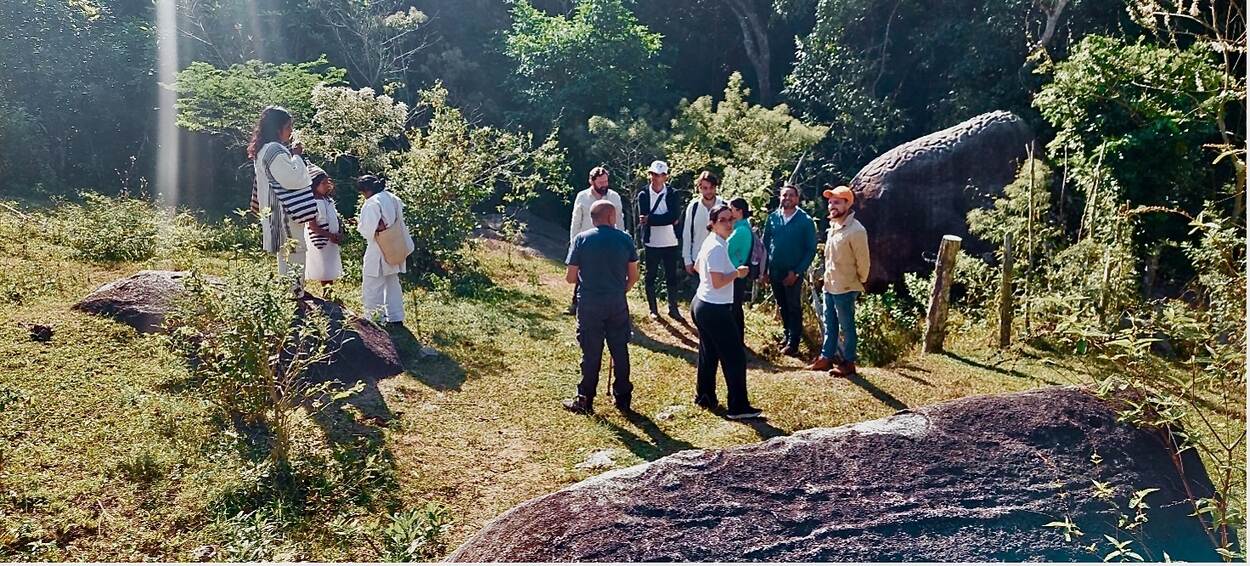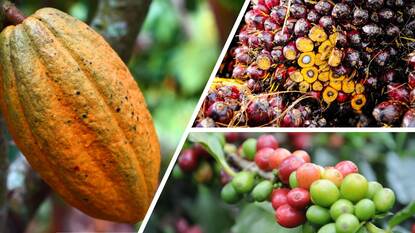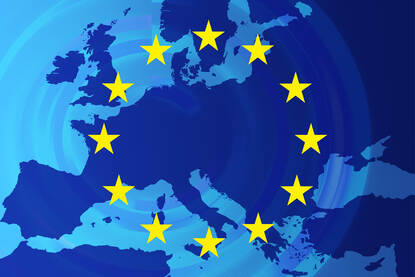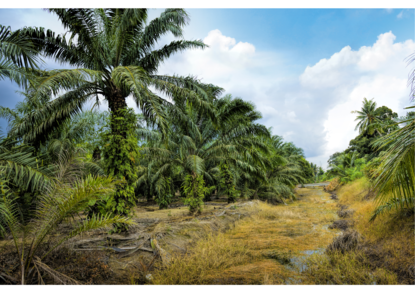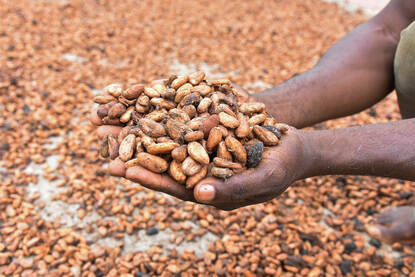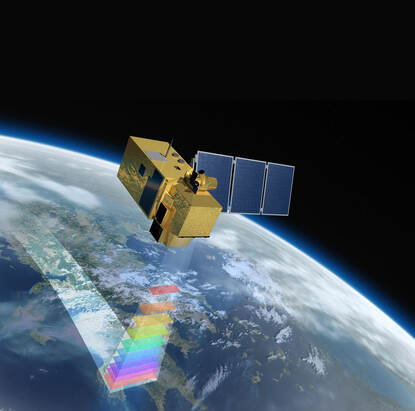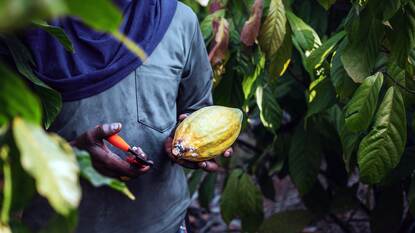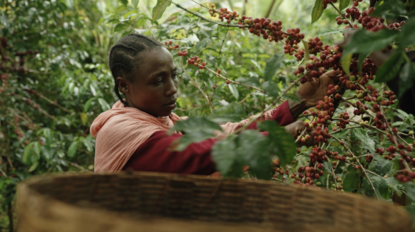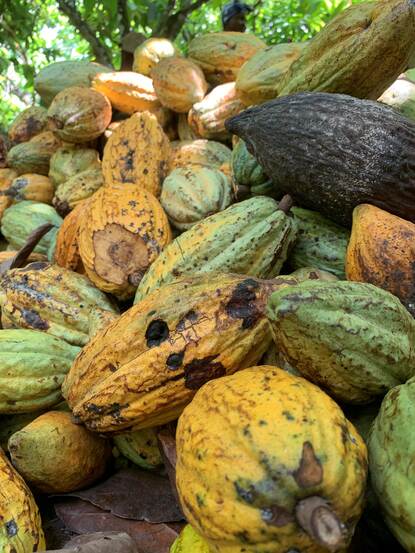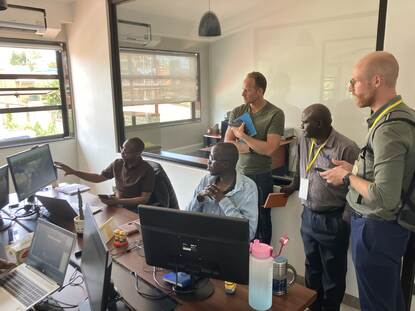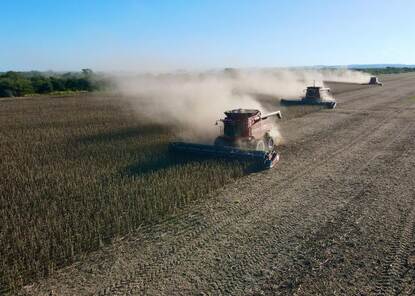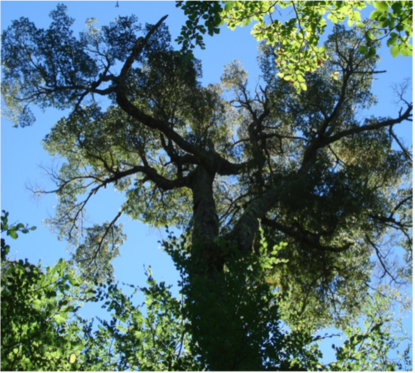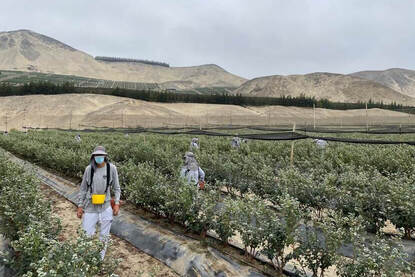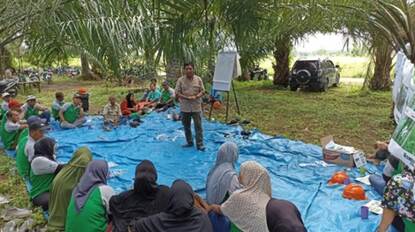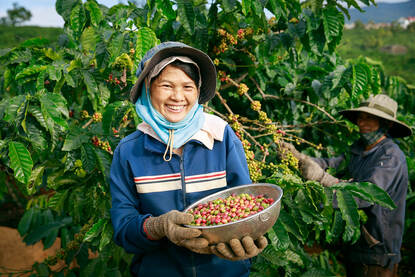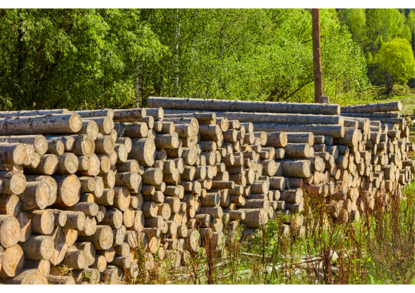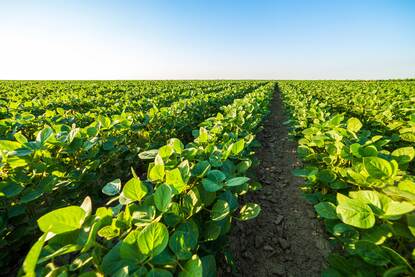Foto Project on agroforestry in the coffee sector with indigenous community (Kogui) in the Sierra Nevada, Santa Marta.
Coffee, cacao, and palm oil are integral to the Colombian economy. As many livelihoods depend on these products, the European Union's Deforestation Regulation (EUDR) could have serious consequences for many Colombians. By supporting traditional methods of sustainable agriculture and implementing strategies that integrate traceability technologies, the Netherlands tries to support Colombian growers in meeting EU regulations, but also to promote sustainable growth and environmental conservation.
The Dutch Embassy in Bogotá, in collaboration with Wageningen University & Research Centre, Resilience—a Dutch consultancy company in the field of sustainability—and local stakeholders from the coffee and palm oil sector, has developed a strategic initiative within the Biodiversity – forests & land issues agenda. The initiative seeks to establish feasible traceability systems for small and medium growers that align with the requirements of the EUDR.
This initiative is funded by the Kansen voor Morgen fund of the Dutch Ministry of Agriculture, Nature & Food Quality (LNV) which aims to develop new local knowledge based on innovative experiences in the Netherlands. As the EUDR will come into force in December 2024, new practices and technologies are needed in the coffee and palm oil sectors to ensure compliance and adaptability to this new regulation. Its comprehensive approach involves identifying and addressing bottlenecks, such as the lack of relevant information for traceability, the loss of tracking data in processing plants, producers located in high-risk deforestation areas, the large number of small producers, and the risk of avoiding the EU market. This includes evaluating technological options for traceability, considering their implications and costs for adoption by small and medium growers.
The aim of the initiative is to propose different traceability alternatives according to each type of producer, mitigating the regulation's impact (especially for small producers) while fostering sustainable value chains. This collaborative effort not only supports Colombian growers in meeting EU regulations, but also promotes these local chains as sustainable sources for international trading partners. The impact extends beyond supporting regulatory compliance to foster sustainable growth, environmental conservation, and community empowerment.
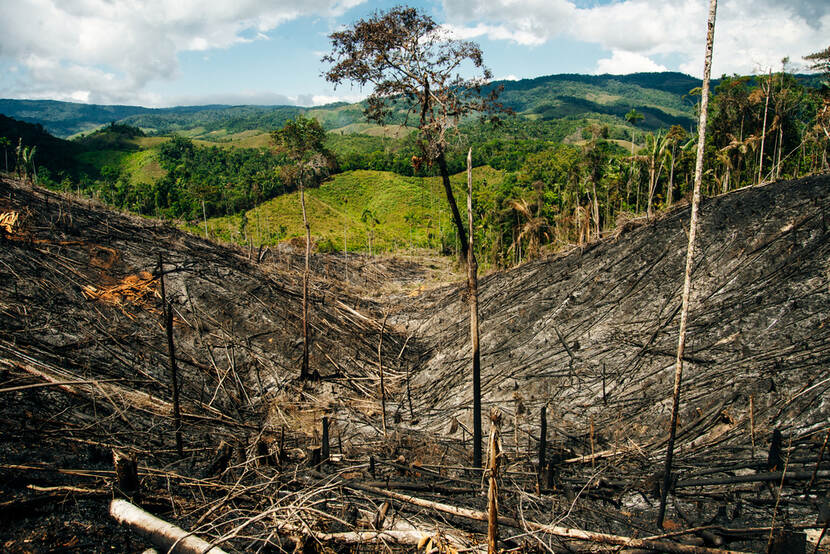
‘The Dutch Embassy in Colombia wants to establish feasible traceability systems for small and medium growers that align with the EUDR’
Supporting traditional methods of agriculture
The efforts of the Dutch Embassy also focus on supporting indigenous communities in the Magdalena department in the Sierra Nevada Mountain range. The Sierra Nevada is not only a unique ecosystem, but also a biodiversity hotspot crucial for global conservation efforts. Indigenous communities such as the Arhuaco and Kogi play a central role in preserving this ecological treasure. These indigenous communities have a deep-rooted connection to their ancestral lands, considering themselves guardians of nature.
Their conservation strategies, including sustainable agriculture such as coffee production, not only strengthen their economic resilience but also contribute substantially to forest conservation. By embracing initiatives such as agroforestry systems in coffee production, communities demonstrate a dual commitment to environmental stewardship and economic vitality. These efforts harmonize seamlessly with the ethos of the EUDR, illustrating a proactive approach towards sustainable development. Recognizing the significance of their efforts, the Dutch Embassy in Colombia has actively engaged in supporting initiatives that empower these communities, for example the Land at Scale projects.
In addition to land rights, biodiversity protection, and economic empowerment, the LAN team of the Dutch Embassy in Colombia explored the role of agrotourism in advancing biodiversity conservation and the bioeconomy. The team visited the ICCO Conexión's program Anfitriones para la Paz (Hosts for Peace) in La Lisa and Finca El Oasis, about three hours up the Sierra Nevada. LAN Colombia supported the start of this project in the past. Initially focusing on short courses and entrepreneurship in eco- and indigenous community tourism, the program has evolved to include sustainable production, gastronomy, and connections to local produce, particularly in the Santa Marta area.
‘The conservation strategies of indigenous people not only strengthen economic resilience but also contribute to forest conservation’
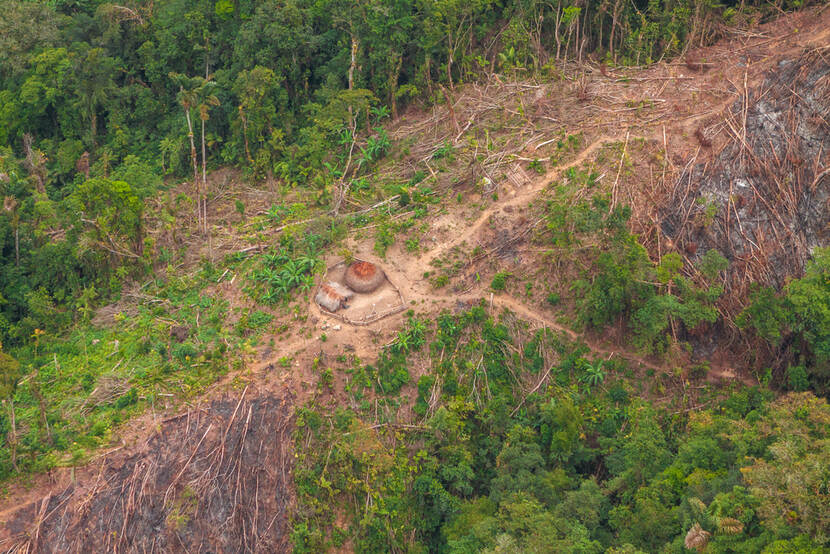
Need for proper implementation
By facilitating knowledge exchange and aiming to have technological solutions implemented, the LAN team of the Dutch embassy in Colombia and the Dutch embassy in Peru covering the Andes region (Colombia, Peru and Ecuador) reaffirms its commitment to promoting responsible agricultural practices aligned with global sustainability objectives. The team works on several initiatives regarding the EUDR to support the interests of the Netherlands and those three countries with technical roundtables between governments, producers, and companies to socialize the impacts of the regulation. As they are important trading partners, there is a mutual need for proper implementation.
More information
Would you like more information on the EUDR and how it impacts the Colombian coffee and palm oil sector? You can visit the county page of Colombia at the website Agroberichtenbuitenland.nl of the Dutch Ministry of Agriculture, Nature and Food Quality. You can also send an email to the agricultural team at the Dutch Embassy in Bogotá to bog-lnv@minbuza.nl.
